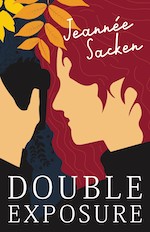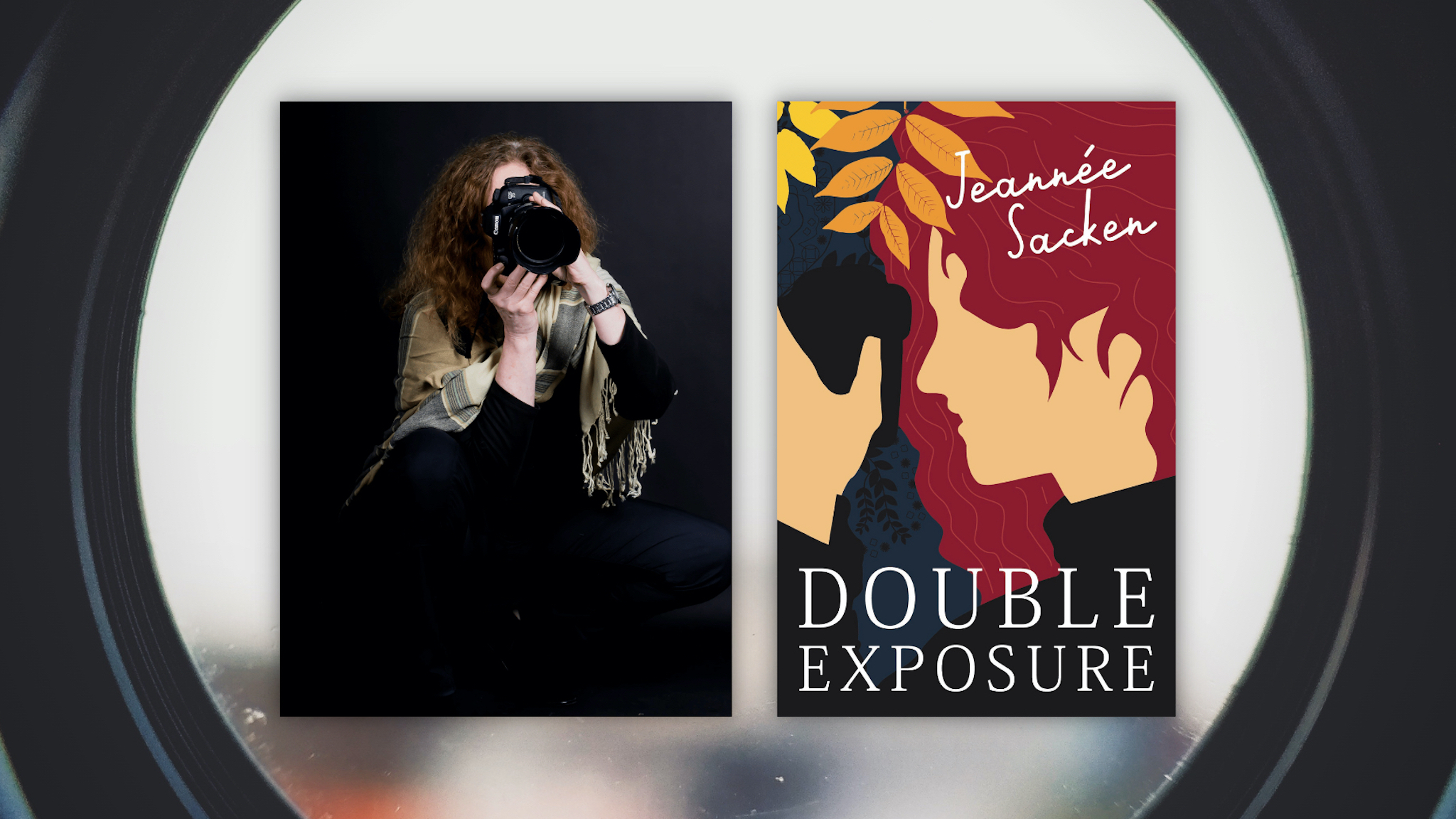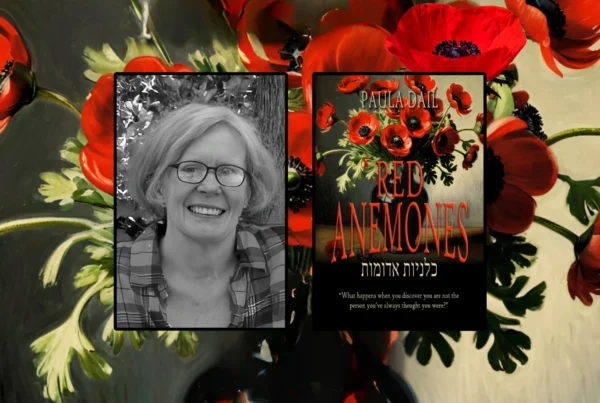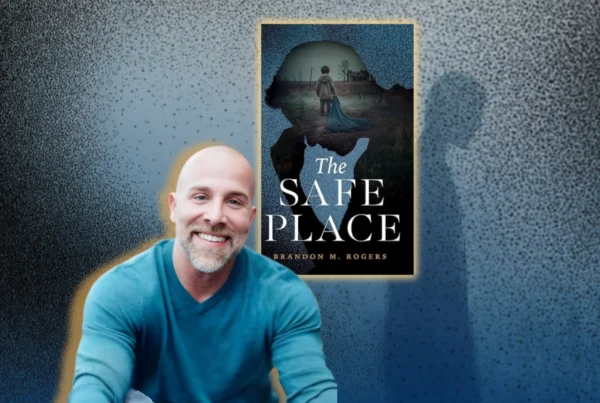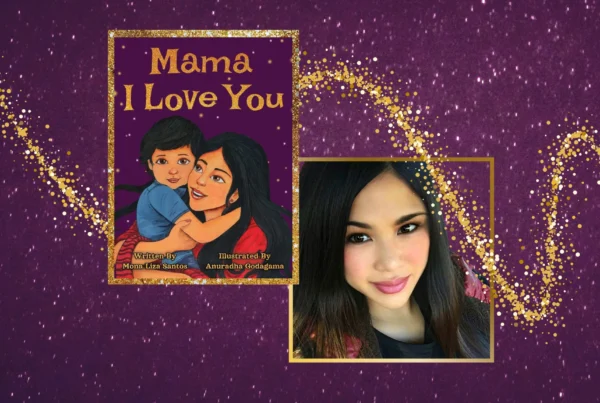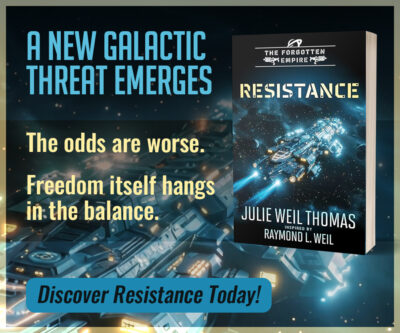Double Exposure by Jeannee Sacken
As Jeannée Sacken tells it, “I found myself sitting with my soon-to-be-husband on the dirt floor of a mud boma in western Zimbabwe. Smoke from the cook fire was wrapping itself around me, making me more than a little dizzy. Facing us sat a gray-haired n’anga, whose deeply wrinkled face was the picture of wisdom. He put four small, intricately carved bones onto the palm of my hand and curled my fingers into a fist around them.”
“I was supposed to ask the bones for help, but I didn’t have any major problems that needed solving or enemies that needed cursing. So I asked the bones a very unimaginative question: What should I do with the rest of my life?”
“The old man cupped his hands beneath mine to take back the bones, held them for a moment, then threw them onto the mat between us. He took a long time studying them. He looked at me closely, locking my eyes to his: ‘You must tell your own stories. This is where you will find your joy.’ Then he raised a cautionary finger and said, ‘One more thing. Be careful of hippos and crocodiles as you make your way up the river.’”
Soon after that day in Zimbabwe, Jeannée Sacken decided to follow her dreams and become a full-time writer and photographer.
Both of Sacken’s novels, Behind the Lens and her more recent Double Exposure, reflect her life experiences. She told us more in this recent Q&A.
Q: Where did the idea for Double Exposure come from?
A: Annie Hawkins Green was the main character in something I wrote years ago. Although that novel didn’t pan out, I couldn’t stop thinking of Annie and wanted to build a story around her. I turned her into a war photographer and so needed a war, preferably with a U.S. military presence. Afghanistan was the perfect setting, particularly because of the challenge girls there face getting an education. Annie debuted in the award-winning Behind the Lens, a complex novel that is the start of the Annie Hawkins Series.
Q: What are the main themes of the book?
A: The enduring power of friendships and the love that aids survival during the hardest moments in life.
Q: Tell us about your protagonist Annie Hawkins. What makes her tick?
A: Readers have said she’s their favorite badass. She’s a smart, kind and brave war photographer, who thrives on the adrenalin rush from being in conflict zones and surviving in order to return. A Pulitzer Prize-winning photog, she especially loves to photograph civilians. She’s also a good — though flawed and guilt-ridden — mom and a loyal — though flawed — friend. When she finally meets the love of her life, U.S. Navy SEAL Captain Finn Cerelli, their life together is nothing short of a roller coaster — due, in part, to her PTSD.
Q: You’ve been called “Indiana Jones with a camera.” What is the background behind that, and how does that persona influence your writing?
A: That moniker came from a magazine article. As a photographer who documents the lives of women and children as well as endangered wildlife, I’ve had my share of adventures: canoeing through hippo alley on the Zambezi River; escaping a burning lodge in the Namib Desert; driving off-road through a blizzard in far-western Mongolia; stepping off a ledge into thin air while climbing Kilimanjaro — to name a few. As many authors do, I fictionalize some of my experiences into my main character Annie Hawkins.
Q: What was the most difficult part of the book to write?
A: Part of Double Exposure takes place in Milwaukee, Wisconsin — Annie’s hometown and where I currently live. Surprisingly, this was challenging because being enmeshed in the city, I had to pick exactly the right details to capture the flavor of the place. No wasted words. In these chapters, Annie is also coping with the sometimes-overwhelming guilt for having given primary custody of her daughter to her ex in order to pursue her career, only to find herself now suspended from that job.
Q: What do you hope readers take away from your book?
A: The critical importance of education especially in places like Afghanistan where the ruling power has banned learning for girls beyond the sixth grade. And even more important: an appreciation and respect for others despite religious and cultural divides.
Q: What is your next project?
A: The third book in the Annie Hawkins Green Series. It’s August 2021, and Annie returns to Afghanistan to document the Taliban’s return to power and to help some Afghan friends escape the country.
